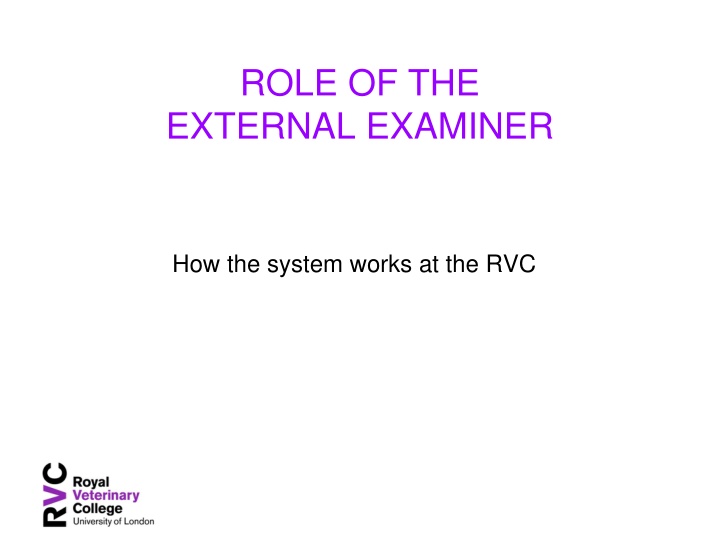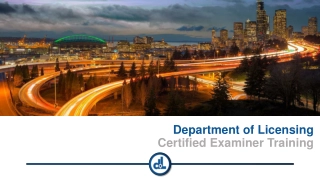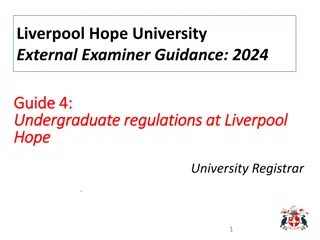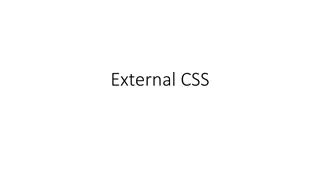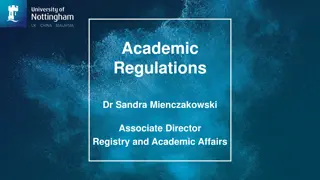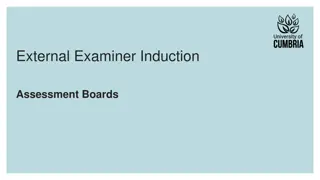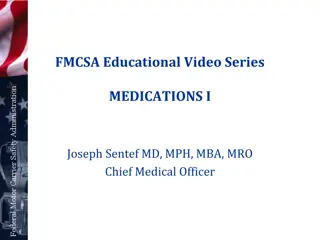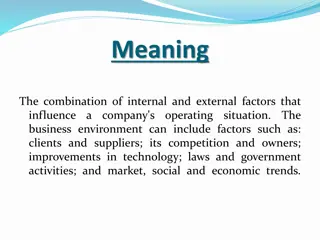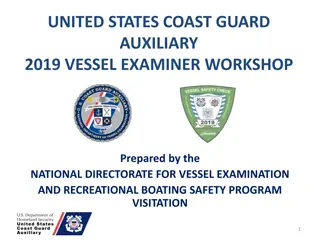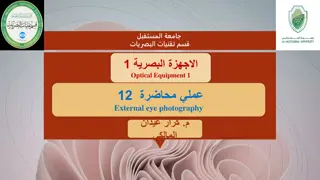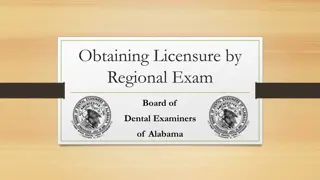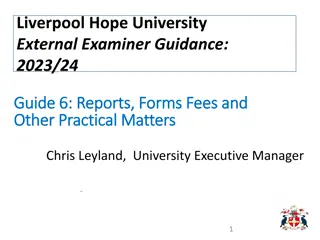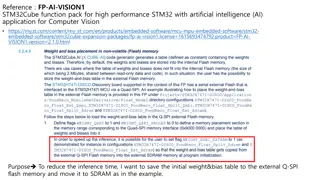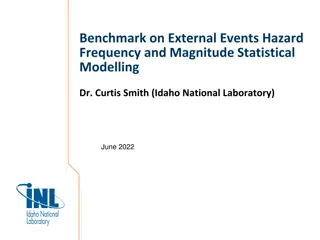Role of External Examiners at RVC
External examiners at RVC play a crucial role in verifying academic standards, ensuring fair assessment processes, and maintaining quality across higher education awards. Their duties include approving examination papers, scrutinizing marking standards, and attending Board of Examiners meetings. They contribute to upholding institutional policies and regulations while providing oversight to examination procedures. External examiners also submit reports and play a key part in decision-making processes related to examination outcomes.
Uploaded on Oct 07, 2024 | 4 Views
Download Presentation

Please find below an Image/Link to download the presentation.
The content on the website is provided AS IS for your information and personal use only. It may not be sold, licensed, or shared on other websites without obtaining consent from the author.If you encounter any issues during the download, it is possible that the publisher has removed the file from their server.
You are allowed to download the files provided on this website for personal or commercial use, subject to the condition that they are used lawfully. All files are the property of their respective owners.
The content on the website is provided AS IS for your information and personal use only. It may not be sold, licensed, or shared on other websites without obtaining consent from the author.
E N D
Presentation Transcript
ROLE OF THE EXTERNAL EXAMINER How the system works at the RVC
Who we are: Cheryl Jackson Academic Quality Manager Sarah Channon Teaching Quality Committee Chair Adam Osgood Examinations Officer Ana Filipovic Senior Academic Quality Officer Standards
The main purposes of external examining are: to verify that academic standards are appropriate for the award, or part thereof (appointed to examine); to help institutions assure and maintain academic standards across HE awards; to help institutions ensure that their assessment processes are sound, operated fairly and in line with the institution's policies and regulations.
External Examiners play an important role in our assurance of quality and standards. Their duties are comprehensive, and include: ensuring that the assessment schedule satisfies the objectives of the course and covers the specified content; approving all written examination papers; confirming that the standard of marking is satisfactory, by scrutinising a sample of scripts and, optionally, coursework. Flag at the Exam Board meeting any batches of marking that lack annotations for the purpose of helping to determine why a mark(s) has been provided; observing (not participating in) oral, practical and clinical examinations; ensuring that there are no irregularities in the conduct of the examination and that it has been conducted in accordance with the Regulations;
External Examiners duties cont'd attending meetings of the Board of Examiners held to determine the results of examinations, and participating fully in all their decisions. Note: In exceptional circumstances and with the prior agreement of the Exam Board Chair, an External Examiner may be permitted to attend the meeting remotely via video call. At least one External Examiner must be present at the Board of Examiners; approving results by signing lists of results; Submit an annual (individual/collaborative) report to the College; If appropriate, submit a confidential report to the Principal if dissatisfied with any decision of a Boards of Examiners.
Very useful information please familiarise yourself with. To continue to meet the ongoing conditions of registration with the OfS, the RVC and other registered providers must ensure that: 1. any standards set appropriately reflect any applicable sector-recognised standards; and 2. awards are only granted to students whose knowledge and skills appropriately reflect any applicable sector-recognised standards. Office for Students (OfS) Condition B5 - Sector-recognised standards Outlines examples of typical higher education qualifications for each level (4, 5, 6, 7, and 8), volumes of credit, credit values, and qualification descriptors. Uses content drawn from: The Frameworks for Higher Education Qualifications of UK Degree Awarding Bodies (FHEQ) and elsewhere.
Very useful information continued. Quality Assurance Agency (QAA): External Examining Principles UK Quality Code for Higher Education Qualification Frameworks Characteristics Statements Credit Frameworks Subject Benchmark Statements Professional Body Requirements: RCVS Accrediting veterinary degrees RCVS Accrediting veterinary nursing qualifications RSoB - Degree Accreditation & Advanced Degree Accreditation etc.
Information we provide: The RVC s Academic Quality, Regulations and Procedures External Examiner information on website RVC Learn this is the RVC s Virtual Learning Environment: username and password supplied by learn@rvc.ac.uk Overall learning outcomes for part of course you examine (Learn/Programme Support) Learning objectives for every teaching session (Learn/Programme Support) Programme Specification (Website/Academic Quality) Assessment and Award Regulations (Website/Exams) Marking schemes and mark descriptors (Website/Exams) Course work - with contribution to in-course assessment specified (Exams) Examination timetables (Website/Exams) Examination papers (Exams) External Examiner reports for the previous year with the College s responses (Website/Academic Quality)
Process of appointment Approached by Course Director/Year Leader Nomination approved by Exam Board Chair Nomination & CV scrutinised by TQ Committee Approved by Academic Board
The Exams Office Team Laura Buckman Head of Examinations and Assessment (HH & Camden) Christina Stobo Senior Examinations Officer (HH) BVetMed Year 5 (Final Year) Adam Osgood Senior Examinations Officer (Camden) BSc Biosciences Year 3 MSci Biosciences Year 4 Emma Rosenberg Examinations Officer (Camden) BSc Biosciences Year 1 Gateway (BVetMed Year 0) MSc Wild Animal Biology / Wild Animal Health Bernadette Dulko-Bocking Examinations Officer (HH) BVetMed Year 3 Post Graduate in Veterinary Clinical Practice Direct Observation of Procedural Skills (DOPs)
The Exams Office Team Maria Johnson Examinations Officer (Camden) BVetMed Year 1 BVetMed Year 2 Graduate Year (GAB) Claire Day Examinations Officer (HH) MSc Veterinary Epidemiology MSc One Health MSc Veterinary Education Certificate in Advanced Veterinary Nursing Shona Hayes Examinations Officer (HH) FdSc/BSc Nursing Masters in Veterinary Medicine Certificate in Advanced Veterinary Practice Graduate Diploma in Applied Equine Locomotor Research
The Exams Office Team cont'd Phoebe Quare Examinations Officer (HH) BVetMed Year 4 RP2 Tolu Atanda Examinations Officer (HH) Objective Structured Clinical Examinations (OSCEs) Rotations Special Exam Arrangements Penny Edwards Examinations Officer (Camden) BSc Biosciences Year 2 Comparative Pathology BSc Animal Health and Disease
Information we provide you with: o Examination questions should be sent to you, for scrutiny, well in advance of the examination; o All questions should be provided with key point model answers and, if appropriate, how marks are to be allocated for sub-sections of questions. This includes how each question will test a specific Learning Outcome in the course or module.
External Examiners should see: o Completed course work contributing to in- course assessment o Written scripts o Practical exams (questions and answer sheets) o Mark sheets and associated statistics o List of candidates taking oral exams/structured orals at re-sits
Institutions will make every effort to ensure that their external examiners are competent to undertake the responsibilities defined in their contract. Teams of examiners Key criteria of appointment Provision of training Provision of information If any doubt please inform us (we can always provide more information!)
An institution should ask its external examiners, in their expert judgement, to report on: whether the academic standards set for its awards, or part thereof, are appropriate; o the extent to which its assessment processes are rigorous, ensure equity of treatment for students and have been fairly conducted within institutional regulations and guidance; o the standards of student performance in the programmes, or parts of programmes, which they have been appointed to examine; o where appropriate, the comparability of the standards and student achievements with those in some other higher education institutions; good practice they have identified. o o
Process of consideration 1. Course Directors/Year Leader are invited to consider External Examiners comments and provide response and course of action where appropriate. 2. Response and Actions form part of the Course Director/Year Leader s annual report (AQIR). 3. Annual Quality Improvement Group meets to consider and approve External Examiners Report and responses to their comments (College Response). 4. Approved External Examiner reports and College Response are published on the RVC website.
How to submit final report Examiners submit final reports to RVC via online system During exam board meeting, inform exams officer: o whether an individual or collaborative report will be submitted o if collaborative, who will act as lead examiner After exam board meeting, emails will guide you through the process Final reports needs to be submitted online, within three weeks. To note: o Names of staff and students, student candidate numbers and similar should be omitted to ensure a level of confidentiality o Details about exam questions should be omitted, as these are often reused. Any queries contact Ana Filipovic afilipovic@rvc.ac.uk
For Info: Personal Development for External Examiners The AdvanceHE has developed a course for external examiners, which is designed to be complementary to a higher education provider s induction and training provision for their external examiners. Upon completion of this course participants receive: o a certificate of completion o an entry on the searchable list of certificated External Examiners on the Advance HE website o membership of the External Examiners Community of Practice on Connect.
Thank you! o Q&A o If you require any further information or clarification prior to the examinations please contact the relevant Exams officer.
